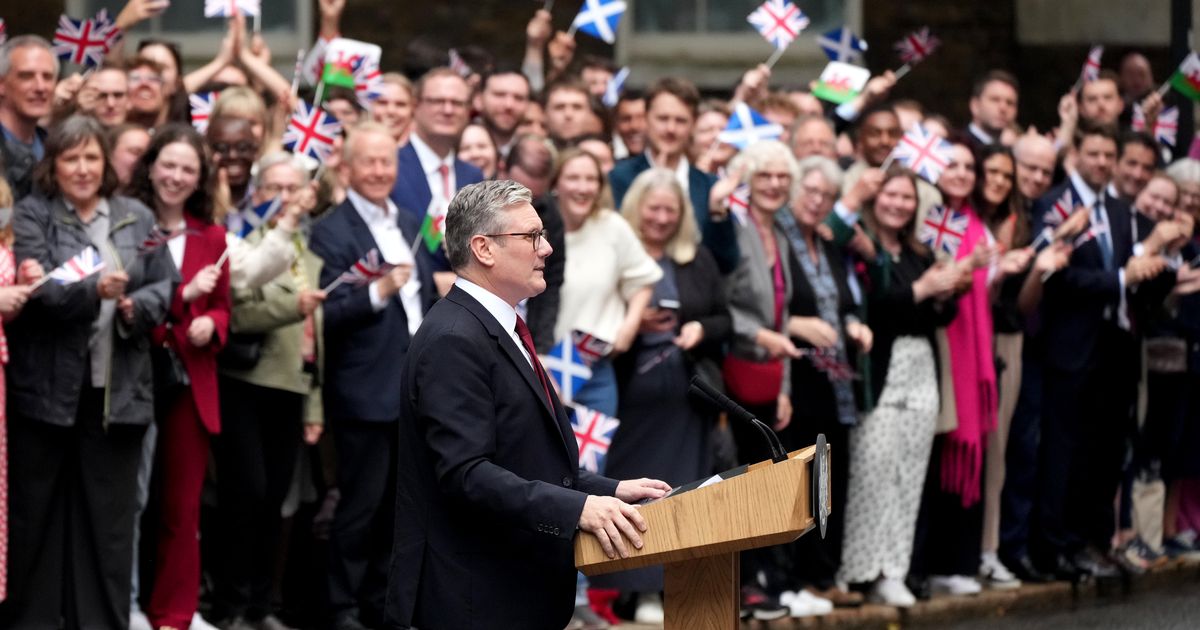By Joseph Timan
Under-promise and over-deliver. That was Labour’s mantra at the last general election.
In power, though, things are different. People are impatient for change and Keir Starmer’s depressing message that things will only get worse before they get better, delivered from Downing Street’s rose garden last summer, killed all hope that change would come soon.
The tone has changed now, but the Prime Minister is still struggling to articulate how his vision differs from those who came before.
One year on from Labour’s landslide win, the party’s popularity has plummeted as voters look elsewhere to those offering real change.
Sign up to the MEN Politics newsletter Due North here
Reform is on the rise as Nigel Farage fills that void while some Labour voters look to the Lib Dems or the Greens as an alternative.
The country is crying out for something more radical – and Labour appear to be incapable of delivering it. But while this might all seem obvious now, just 12 months ago Labour were being congratulated for the cautionary approach that helped them win the election.
It’s frustrating when politicians repeatedly refuse to commit to doing anything you put to them – whether it’s a big transport project or a much-needed hospital rebuild. But after a decade of broken and supposedly unfunded promises, in some ways, it was refreshing.
To some extent, we’re holding Labour to the promises their predecessors made. Like when Rachel Reeves came to Stalybridge to announce funding for the TransPennine Route Upgrade – something the Conservatives committed to more than a decade earlier.
The Chancellor insisted that ‘this is different’ because the Tories hadn’t set aside the money for it. While that may be true, it’s hard to get excited about better budgeting. And when you’ve heard promises made so many times before, you’ve got to see it to believe it.
There are hopes now, with the Spending Review out of the way, that Labour can finally start to commit to some major projects in the North – the kind we desperately need. Perhaps now Labour can at least start to ‘deliver’, if not ‘over deliver’, as the mantra dictates.
The mantra makes sense. Labour have learnt lessons from the Tories’ torrid time in power when the British people totally lost trust in politics. Rebuilding that trust won’t happen overnight.
The problem is, Labour broke their own rule from the get-go in one fundamental way. Asked how they would fix our failing public services – through taxes or borrowing – they said neither.
There was no need to raise taxes (on ‘working people’, whatever that means) or borrow more money, nor would the government need to continue the Conservatives’ campaign of austerity. So where does the money come from?
Growth. It was the word that ministers repeated again and again when asked this question.
The only problem is, that’s not something a politician can promise – it’s out of their hands. Of course, the government can create the conditions for growth, but it cannot guarantee it.
Take Donald Trump’s tariffs. No one could have predicted exactly how that would play out and what impact the US president’s actions would have on the rest of the world’s economy.
And then there’s the prospect of all-out war in the Middle East causing another energy crisis and resulting in prices rising everywhere. Did Labour learn nothing from the war in Ukraine and the cost of living crisis that followed?
To make matters worse, in the budget last October, Labour made decisions that have directly contradicted their growth ambitions. There’s no denying that the hike in national insurance contributions for employers is going to hurt businesses, both small and large.
Labour have clearly got a difficult job on their hands and the books must be balanced. But they’ve backed themselves into a corner, ruling out taxes rises, refusing to change borrowing rules and relying on growth which has so far remained sluggish, below 1 per cent.
The consequence of all this is that there isn’t much wiggle room in the country’s finances, leaving Labour tinkering around the edges.
The country didn’t vote for continuity. We voted for change.
‘Stability is change’, senior Labour figures would insist as they vowed to put an end to the chaotic tenure of the Tories in recent years.
Stability would have been a welcome change, but it would never have been enough. And this week’s chaos over welfare reforms suggests little has changed on that front either.
The government’s failure to push through its controversial cuts to disability benefits will be welcomed by many, but it leaves Sir Keir’s reputation in tatters.
As for Ms Reeves, while her tears may have been triggered by ‘personal’ matters, the image of her crying in the Commons during Prime Minister’s Questions was symbolic of the mess Labour finds itself in.
After a year of a Labour government the overwhelming feeling is one of disappointment. Their mantra was to under-promise, but so far it feels like they’ve under-delivered too.
